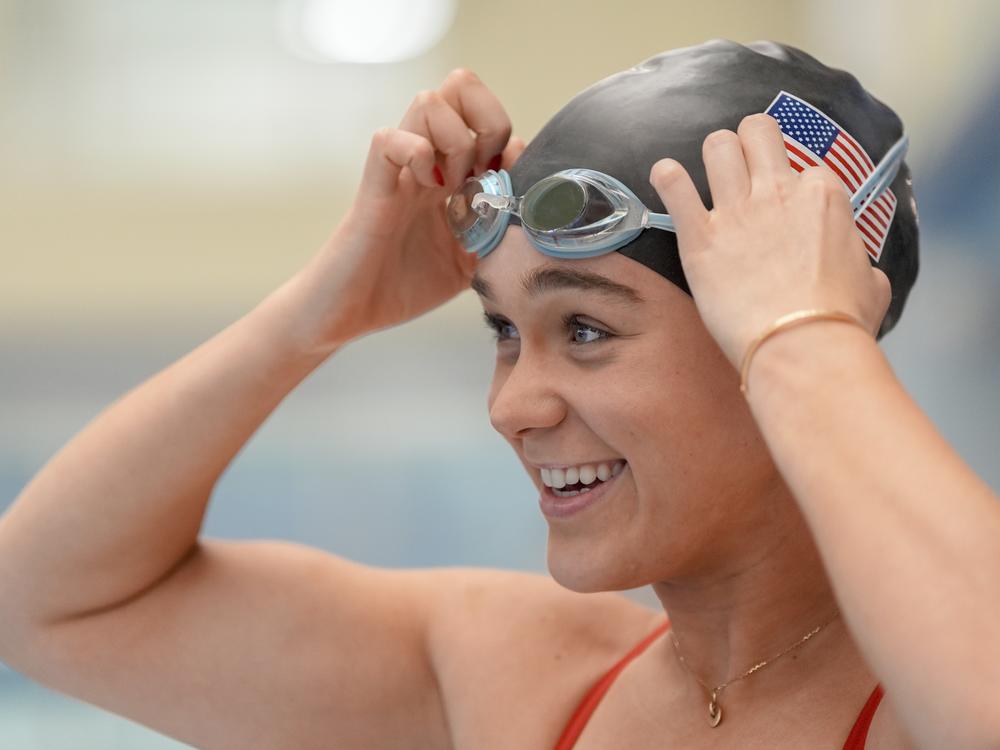Section Branding
Header Content
Ali Truwit swims to Paralympic silver a year after losing her leg in a shark attack
Primary Content
A shark attack just days after her graduation from Yale last May left former Division I swimmer Ali Truwit with an amputated leg and a host of questions.
“I’m a lifelong athlete — 10 days before the attack I’d run a marathon with my mom,” Truwit told The Kelly Clarkson Show earlier this year. “And I was sitting there thinking, ‘Am I ever going to run again? Am I ever going to be able to be an athlete again?' ”
The answer is an Olympic-sized yes.
Three months after the attack, Truwit competed in her first Para swim meet. Within a year, she had qualified for the Paralympic Games in Paris. And this week, she won two silver medals.
On Thursday, the 24-year-old placed second in the women's 400 meter free S10, the longest distance in Paralympic swimming.
Truwit’s time of 4:31.39 didn’t just earn her a medal; it also set a new American record.
Ali Truwit sets a new American record (4:31.39) as she takes silver in the women's 400m free S10 and Aurelie Rivard takes gold for Canada. 🇺🇸🇨🇦
📺 USA Network & Peacock | #ParisParalympics pic.twitter.com/pGOtDFtnmR— NBC Olympics & Paralympics (@NBCOlympics) September 5, 2024
The NBC announcer summed up Truwit’s comeback this way: “She swam for her life, and now she swam on to the podium.”
“I feel really, really grateful to contribute to Team USA's medal count, because what I've achieved is on the shoulders of truly so much support from everyone around the country and that’s what’s gotten me to where I am today,” the Connecticut native said poolside in Paris, where about 50 loved ones are cheering her on — including the friend she credits with saving her life.
She acknowledged the past year has been “filled with fear”: getting back in the water, taking her first steps on a prosthetic leg, even showing her leg on national television.
“And I think throughout my life I’ve learned the only way through fear is to face it, and so that’s what I’ve done,” she added. “I’ve just faced it, and I’ve used the support around me to help me do that.”
Truwit qualified for the women’s 100 meter backstroke on Friday and went on to cinch a second silver medal in the event final the same day. Her time of 1:08:59 set another American record, according to NBC.
"It’s a real full-circle moment and speaks to the support I have all around me,” she told reporters after her first race. “When you are truly faced with death and you understand what a second chance at life means, you want to make the most of it.”
How Truwit got back in the water — and to the Paralympics
Truwit and a friend were snorkeling off the coast of Turks and Caicos in May 2023 when a “huge shark came out of nowhere and started fighting us,” as she told The Kelly Clarkson Show.
They fought back, but the shark bit off Truwit’s left foot at the ankle. The two college swimmers managed to swim some 50 to 75 yards back to the boat, where her friend could apply a tourniquet to stop the bleeding.
“Without that training, I’m not sure we would have made it back to the boat in the open ocean,” Truwit told U.S. Paralympic Swimming in April. “In a story where a really unlucky thing happened, there was a lot of luck in who was around me.”
Truwit was airlifted to a hospital in Miami, where she underwent surgeries and blood transfusions to fight infection. Several days later, she was moved to New York and had her leg amputated below the knee on her 23rd birthday.
Truwit, who had loved swimming her entire life, knew she had to get back in the water — and that it wouldn’t be easy.
“I had lost enough and anything that was on the table for me to regain, I was going to fight to regain it,” Truwitt said. “I didn’t want to lose a limb and my love of the water, too.”
Last September, Truwit reached out to her former club coach, James Barone, to begin training again.
She had to completely adapt her swimming technique as a lower leg amputee, relearning every aspect of the sport — from standing on the starting blocks to flip turns on the wall to adjusting her breathing patterns and balance.
“The more I worked at it, the flashbacks reduced and the pain lessened,” Truwit said.
A series of connections set Truwit’s Paralympic journey in motion.
A friend introduced her to Paralympian Erin Popovich, who runs the U.S. Para swim program and explained how to get involved. Truwit’s prosthetist connected her to another of his clients, highly decorated, six-time Paralympian Jessica Long, who quickly became a friend and mentor.
Truwit competed in her first Para swim meet in October, and by December was winning medals at U.S. nationals. In April, she competed internationally in Portugal, her first trip abroad since the attack. And in June, she qualified for the Paralympics in the 100 backstroke, 400 free and 100 free.
“I’m getting to finish this on my terms in a way that I never would have imagined and at a level I never would have imagined,” Truwit told NBC at the time. “To think about the fact that I get to represent my country is so incredible. We all have more in us and for me that’s such an exciting thought.”
Truwit has also started a charity to provide financial assistance to people in need of prosthetics and help people become water-safe. It’s called “Stronger Than You Think.”

